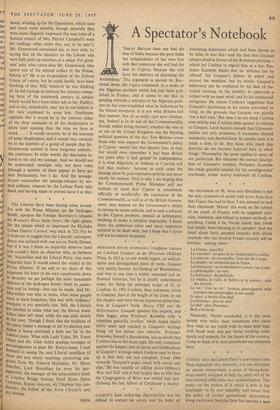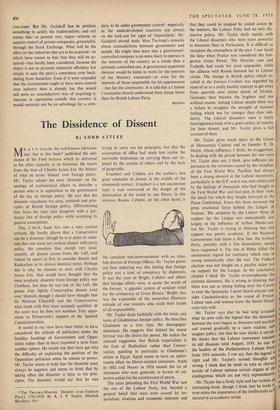I CANNOT TAKE the Labour Party's new venture into State
capitalism very seriously; it is too obviously an uneasy compromise, a piece of facing-both- ways mainly designed to help the party out of its own internal difficulties over nationalisation. The party—or the section of it which is now in the ascendant—is by now tolerably well aware that the policy of further government intervention along traditional Socialist lines has become a sure vote-loser. But Mr. Gaitskell has to produce something to satisfy the traditionalists; and out comes this—at present very vague—scheme to acquire control of private companies, presumably through the Stock Exchange. What will be the effect on the industries that are to be acquired—or which have reason to fear that they will be ac- quired—has hardly been considered, because the object is not to promote industrial efficiency but simply to ease the party's conscience over back- sliding from Socialism. Even if it were conceded that the Government ought to have more control over industry than it already has this would still seem an unsatisfactory way of acquiring it, because in operations outside this country it would certainly not be an advantage for a corn- pany to be under government control—especially as the underdeveloped countries are always on the look-out for signs of 'imperialism.' Mr. Gaitskell should study ivlao Tse-tung's remarks about contradictions between government and people. He might then learn that a government- controlled company is no more likely to operate in the interests of the country as a whole than a privately controlled one. A government-appointed director would be liable to work for the interests of the Ministry concerned—or even for the interests of those responsible for his appointment —not for the community. It is odd that a Chinese Communist should understand these things better than the British Labour Party.
PHAROS



































 Previous page
Previous page